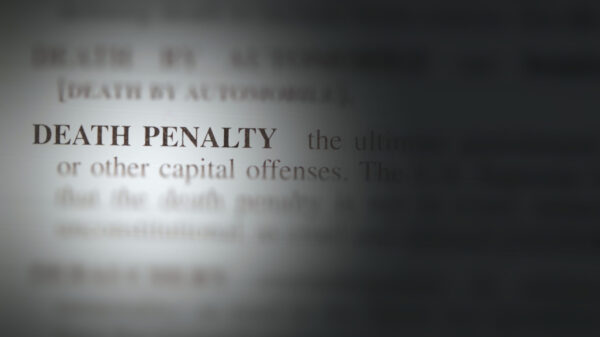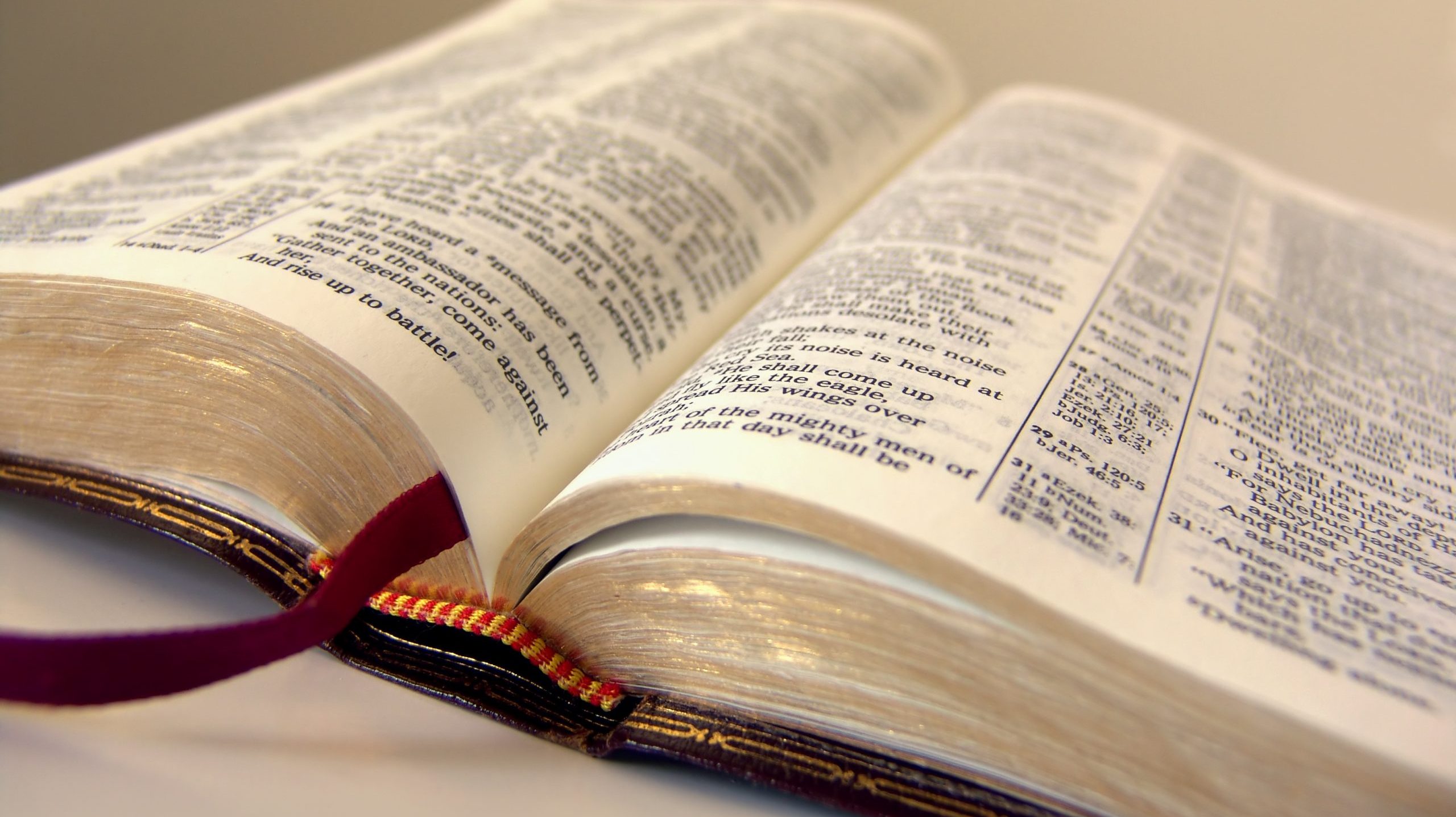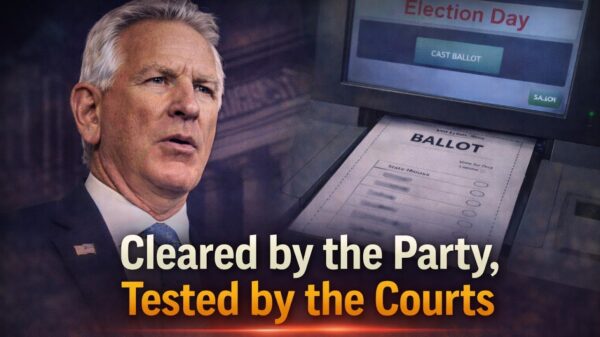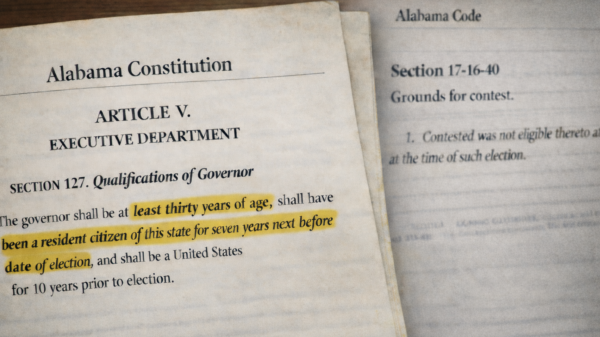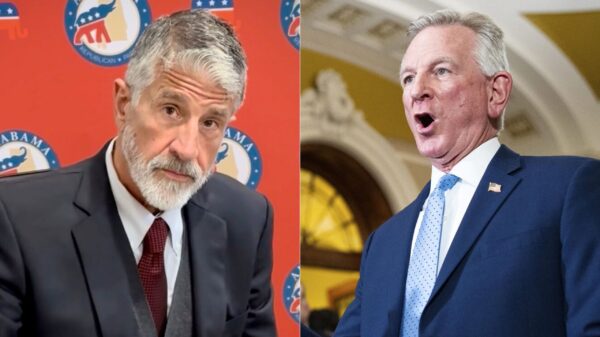This week, U.S. Senators Tommy Tuberville and Katie Britt joined 25 Republican colleagues in introducing a resolution to designate Oct. 5–11, 2025, as “Religious Education Week.” On paper, it celebrates the role of faith-based learning in shaping young people’s “moral and civic development.” But when Tuberville declared that the resolution reflected “our country’s Judeo-Christian values,” he revealed more than he intended.
There is no such thing as “Judeo-Christian.” The phrase may sound reverent, but it is a political fiction—an invention meant to sanctify power, not to express truth. It didn’t come from scripture; it came from speechwriters.
The term emerged during World War II and the Cold War, when American leaders wanted to frame the nation as morally united against godless totalitarianism. It was a convenient slogan—an imagined bridge between Judaism and Christianity that ignored centuries of persecution and theological division. What had once been a divide marked by exclusion was suddenly recast as a shared heritage, useful for patriotic branding.
Now, it has become a reflex. When politicians invoke “Judeo-Christian values,” they’re not speaking about theology; they’re signaling allegiance to a political identity. It’s a language of exclusion disguised as unity—a way of saying “our faiths,” while quietly meaning only one.
The truth is that Judaism and Christianity diverge profoundly on questions of covenant, salvation and divine law. Pretending otherwise flattens history into a bumper sticker. Worse, it turns religion into a campaign prop—used to justify everything from private school vouchers to the dismantling of public education itself.
The State’s CHOOSE Act, for example, funnels public money into private and religious schools under the banner of “parental choice.” State Senator Shay Shelnutt now wants Alabama schools to grant elective credit for religious “released-time” programs. Each step may sound harmless, even benevolent, but together they chip away at the wall between church and state—the very barrier that protects faith from politics and politics from hypocrisy.
This is not a criticism of Tuberville so much as a critique of the modern habit of repeating words without thinking about where they came from or what they mean. He likely said what he did because he’s heard others say it. Too many politicians rely on staffers or think tanks to feed them lines, mistaking repetition for conviction. Words have meanings, and when used carelessly by those in power, they shape law and culture in ways their speakers rarely understand.
And when Britt and Tuberville say “religious,” do they mean all religions? Do they mean the Hindu, the Muslim, the Sikh, the Buddhist—or the child raised in no faith at all? Or do they mean only those forms of religion that fit neatly into political-speak?
Contrary to this modern mythmaking, the Founders were deliberate about keeping the state out of the pulpit. The First Amendment’s Establishment Clause was not an afterthought; it was a safeguard born from Europe’s long history of sectarian violence. Jefferson’s famous “wall of separation” was not a rejection of faith—it was a protection of it. It kept belief sacred by keeping it free.
That freedom—to believe or not believe without coercion—is one of America’s greatest moral achievements. It’s what allows a Christian to worship beside a Jew, a Muslim or an atheist, without fear or favor. That is the real foundation of our civic virtue—not an invented “Judeo-Christian” identity, but the liberty to follow conscience.
When politicians insist this country was “built on love of God, love of country, and love of family,” they’re not wrong to value those sentiments—but they are wrong about their source. America was not built on shared catechism; it was built on shared conviction that freedom is sacred. The Constitution begins not with divine invocation, but with “We the People.” That should tell us everything about where sovereignty resides.
Faith belongs to the heart, not the party platform. True religion doesn’t need government endorsement—it needs humility, compassion and courage. And at a time when the federal government is shut down and the Senate is mired in name-calling and recrimination, perhaps genuine religious values—charity, grace and moral clarity—should guide our leaders more than the politics of division.
America’s promise has never depended on uniform belief. It rests on shared freedom. The myth of “Judeo-Christian” values is just that—a myth. The real test of our values lies not in how loudly we proclaim them, but in how faithfully we protect the freedom of others to disagree.















